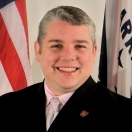
 “All disasters are local,” so goes the saying. From the moment an event or disaster happens, citizens are the first, most directly affected. For this reason, programs like the Arkansas Citizen Corps and many others like it, around the country, spend countless hours and dollars ensuring that members of the community are prepared to respond to these catastrophic events. 2011 saw countless natural disasters including flooding, tornadoes and winter weather. Arkansas has seen 12 Federally Declared Disasters since 2008.
“All disasters are local,” so goes the saying. From the moment an event or disaster happens, citizens are the first, most directly affected. For this reason, programs like the Arkansas Citizen Corps and many others like it, around the country, spend countless hours and dollars ensuring that members of the community are prepared to respond to these catastrophic events. 2011 saw countless natural disasters including flooding, tornadoes and winter weather. Arkansas has seen 12 Federally Declared Disasters since 2008.
When I started at the Arkansas Department of Emergency Management in January 2008, I had been on the job less than 2 weeks when the state experienced a series of tornado outbreaks on February 5, 2008. I was working the State Emergency Operations Center and watched the storms wreak havoc across our state. From February through September of 2008, we had five federal declarations alone. As I worked on disaster deployments in many counties, I saw first-hand how devastating these storms were. In a matter of hours, the lives of countless Arkansans were turned upside down. Fortunately, the loss of life in these storms was low. But any life lost gives us pause to see if there is more we can do to prepare our citizens.
One of the important goals of the Citizen Corps Program is educate and train the community in ways they can prepare themselves. It’s often said that we need to be self-sufficient for at least 72 hours after a disaster. And while this is a good start, many Americans and Arkansans live in rural communities. These 72 hours may need to be adjusted to a week or longer. This self-sufficiency must include everything you need to survive like medications, water for people and pets, food and safe living conditions. Training and classes are available all around the country for the public to better prepare.
The public isn’t the only group who has a role in preparedness. Responders in law enforcement, fire, emergency management, medical response and the private sector are all partners in preparedness. This concept is commonly referred to as The Whole Community. Our work in this area reflects a need to prepare for the needs of all members of communities. Whether that means residents in low-income areas, those with access and function needs or the businesses that an area relies for necessities, everyone must make the effort to plan and prepare for disasters and emergencies that interrupt daily life. The whole community is affected by disasters and the whole community must be a part of the response.
Throughout Arkansas and states, territories and tribes around the country, planning and preparedness efforts are needed. When the public is trained and can participate in the response to a disaster or even terrorist incident, this frees emergency personnel to know where to more heavily commit their resources. According to many sources, a dollar spent on preparedness can save between $6 and $7 in response cost. This is a tremendous cost savings. In an era of increased fiscal oversight, it’s important to carefully examine where our government spends taxpayer dollars. Activities in Citizen Corps and emergency preparedness are important. As states and localities struggle with budget shortfalls, dollars spent on preparedness activities can actually positively affect the response and save money in the long-run.
In honor of the 10th anniversary of September 11, Arkansas launched a new website to help Arkansans prepare for all types of emergencies. The Ready Arkansas: A State of Preparedness (www.Ready.Arkansas.gov) program has information on preparedness activities that can help our citizens. Modeled after the national Ready program, our state program tailors information to the lives of Arkansans. Going forward, this program will be a source for the entire state to better prepare for emergencies and disasters.
The Citizen Corps Program helps promote public service. Public service is proud tradition. My parents are proud examples of how public servants can makes changes in the lives of people in their community. My mom is a retired middle and high school teacher of nearly 28 years and my dad is a retired Assistant Fire Chief who still volunteers as a rural rescue responder in my hometown of about 4,000 people. The Arkansas Citizen Corps Program and the other programs around the country, rely on volunteers with vast experience to help prepare their communities.
As Americans begin 2012, preparedness is a good attitude to have. Just picking up an item or two each time you visit the store, to help build a home kit, can go a long way in building a culture of preparedness. The worth of programs, like ours, is impossible to measure. As the country experiences more disasters, public preparedness is a campaign we can’t abandon. If we each take a moment to help prepare ourselves, our families, our neighbors and our communities, we will have multiplied that effort in ways we can’t imagine. We’ll know it’s successful when we see lives saved and communities more resilient after disasters. Preparedness never ends; it’s a skill and practice that we must pass on to generations to come.
Chad Stover is the Deputy Branch Chief for Homeland Security and the State Citizen Corps Coordinator at the Arkansas Department of Emergency Management.


